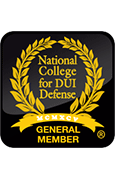Assault and battery in North Carolina may lead to prison time
Assault and battery are often lumped together when an individual is charged with a crime, but they are two separate legal terms. In some states, assault and battery are two separate charges and in other states they are lumped together into a single charge. In North Carolina, there are three different types of misdemeanor assault and battery charges with which an individual can be charged.
Assault is typically defined as the act of threatening or attempting to harm another individual. Most states require that the act be willful in order to for it to be considered assault. Dangerous behavior is considered to be willful. For example, a person who behaves recklessly may be charged with assault even if he or she did not deliberately harm or threaten another individual. Assault differs from batter in that no contact is necessary in order for the act to be considered assault.
Though legal definitions vary by state, battery is normally defined as the harmful touch or intentional injury to another individual without his or her consent. Reckless or dangerous behavior may be considered assault though an accidental injury is not usually considered assault. An individual does not have to be seriously injured in order for the act to be considered battery; intentional touching done with harmful intent is enough for an individual to be charged with battery.
In North Carolina, assault and battery may be charged with probation, 30 days in jail or fines up to $1,000 for misdemeanor charges. Serious assault and battery charges carry more hefty prison sentences and fines. These consequences may make it difficult to secure future employment opportunities. A lawyer might be able to protect a client’s rights during the proceedings.























